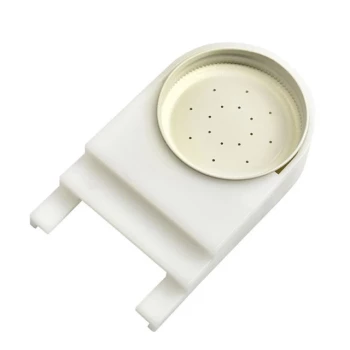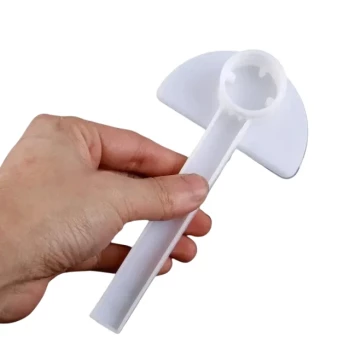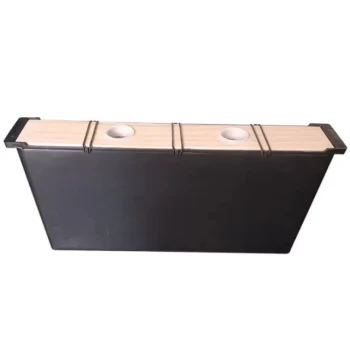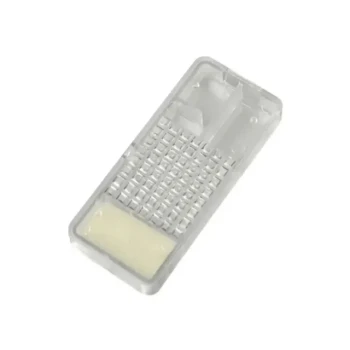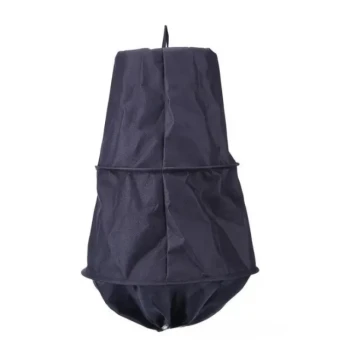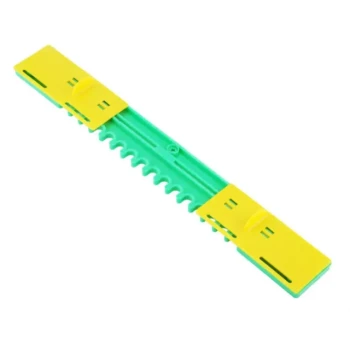At its core, a nucleus colony, or "nuc," is a small, fully functional starter hive. It contains all the essential elements of a full-sized colony—a mated queen, bees, brood (developing bees), and food stores—housed in a smaller box, typically holding three to five frames. Beekeepers use them as a versatile tool for starting new hives, solving common beekeeping problems, and strengthening their overall apiary.
A nuc is far more than just a way to begin a new beehive. It is a beekeeper's most valuable resource for rapid problem-solving, serving as an "insurance policy" against queen failure and a tool for proactive colony management.

What Exactly is a Nucleus Colony?
A nuc is a microcosm of a full-strength hive. Understanding its components reveals why it is such a powerful and self-sufficient unit.
The Core Components
A balanced nuc contains a mated and laying queen, which is the heart of the colony. It will have several frames of brood in all stages (eggs, larvae, and pupae), ensuring a continuous supply of new bees. It also includes frames with stored honey and pollen to feed the colony, along with several thousand worker bees.
The Nuc Box
This entire colony is housed in a small "nuc box." This compact environment makes it easier for the small population of bees to control the temperature and humidity, which is critical for raising brood and building up their strength.
The Primary Functions of a Nuc
While often purchased by beginners, experienced beekeepers maintain nucs throughout the season as a key management tool. They serve several critical functions that ensure a healthy and productive apiary.
Starting a New Hive
For new beekeepers, a nuc is the ideal way to start. Because it arrives with an already established, laying queen and a multi-generational workforce, a nuc builds up much faster and more reliably than a simple package of bees.
Solving Emergency Queen Issues
This is arguably the most vital role of a nuc for an established beekeeper. If a full-sized production hive suddenly loses its queen (goes queenless) or the existing queen begins to fail, the entire colony is at risk.
Having a nuc on hand allows for an immediate requeening. You can transfer the queen and a frame or two of her brood into the queenless hive, saving it from a long period without growth and preventing a catastrophic loss in honey production.
Boosting Weaker Colonies
Sometimes a hive may struggle to build its population due to a harsh winter or other stressors. A beekeeper can take a frame of sealed brood from a strong nuc and give it to the weaker hive. This provides an immediate infusion of new bees, helping the colony regain its strength.
Managing Swarms and Overcrowding
An empty nuc box is an excellent tool for swarm management. It can be used to catch a swarm that has issued from one of your hives. It can also be used to proactively prevent a swarm by making a "split"—removing the old queen and a few frames of brood into a nuc box to alleviate crowding in the original hive.
The Strategic Trade-off: Maintaining a Nuc
While incredibly useful, maintaining a nuc is not without its costs. It requires an investment of resources.
A Commitment of Resources
A nuc is a living colony that needs to be managed just like any other hive. It requires inspections, feeding if necessary, and mite treatments. You are essentially dedicating a portion of your bees, brood, and food stores to a backup colony instead of a full production hive.
Potential for Failure
Like any colony, a nuc can fail. It may struggle to build up, lose its queen, or succumb to pests. The resources invested in it can be lost, though this risk is a fundamental part of beekeeping.
Making the Right Choice for Your Apiary
Leveraging a nuc effectively depends entirely on your beekeeping goals. It is a flexible tool that adapts to your specific needs.
- If your primary focus is starting your first hive: A nuc is the most reliable and effective way to begin your beekeeping journey.
- If your primary focus is expanding your apiary: Use nucs to make splits from your strongest hives, creating new, healthy colonies.
- If your primary focus is maximizing hive resilience and productivity: Maintain at least one "spare" nuc throughout the season as a resource to instantly solve queen problems and save your large colonies.
Ultimately, integrating nucs into your beekeeping practice transitions you from simply keeping bees to actively managing a resilient and thriving apiary.
Summary Table:
| Function | Key Benefit | Ideal For |
|---|---|---|
| Starting a New Hive | Faster, more reliable establishment than a package of bees. | New Beekeepers |
| Emergency Requeening | Instantly save a queenless hive from collapse. | Experienced Beekeepers |
| Boosting Weak Colonies | Provide an immediate infusion of new bees and brood. | All Beekeepers |
| Swarm Management | Catch swarms or make splits to prevent overcrowding. | Apiary Managers |
Ready to build a more resilient and productive apiary?
At HONESTBEE, we supply commercial apiaries and beekeeping equipment distributors with the high-quality nuc boxes, frames, and essential supplies needed to successfully manage nucleus colonies. Our wholesale-focused operations ensure you get the reliable equipment to support your critical beekeeping tasks, from emergency requeening to strategic splits.
Contact our team today to discuss your specific needs and discover how our supplies can strengthen your operation.
Visual Guide
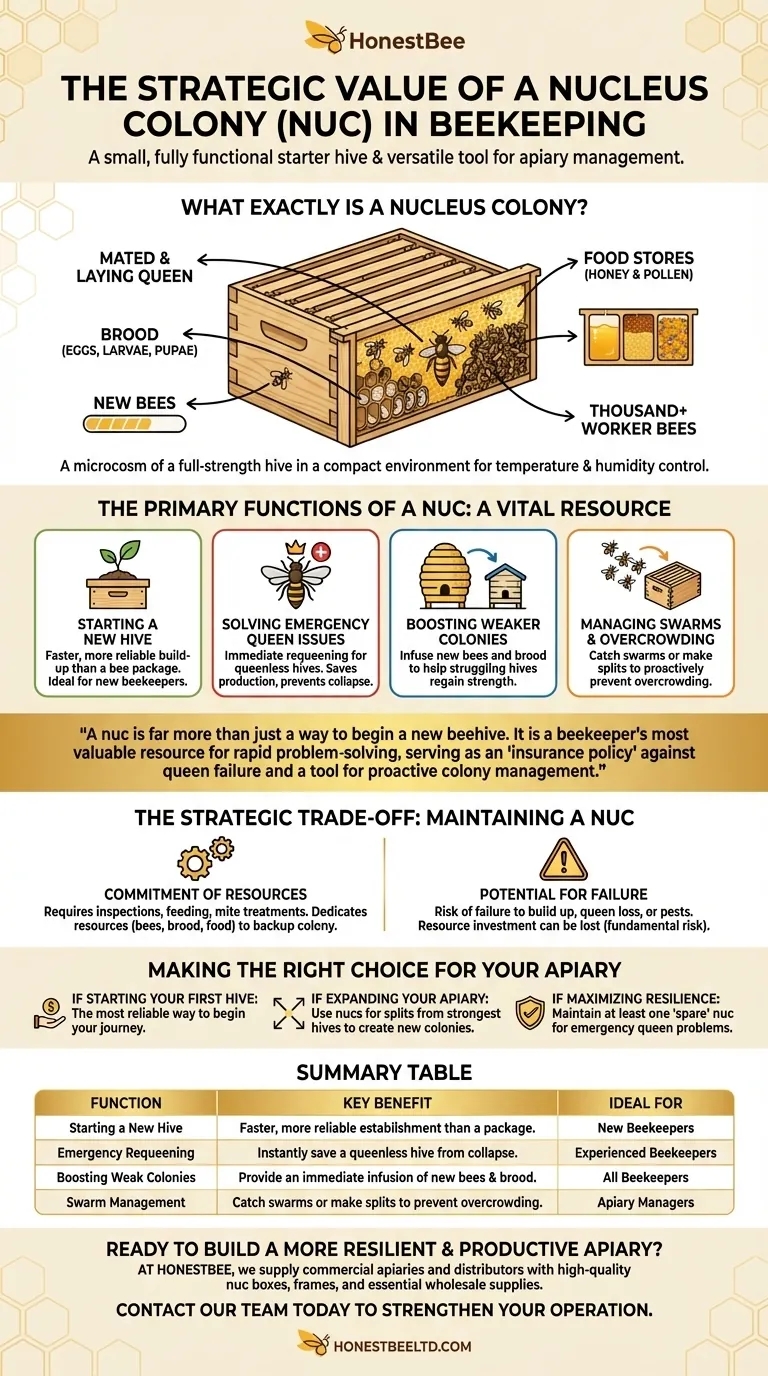
Related Products
- 5 Frame Wooden Nuc Box for Beekeeping
- Twin Queen Styrofoam Honey Bee Nucs Mating and Breeding Box
- Automatic Heat Preservation 6 Frame Pro Nuc Box for Honey Bee Queen Mating
- Styrofoam Mini Mating Nuc Box with Frames Feeder Styrofoam Bee Hives 3 Frame Nuc Box
- Plastic Transporting Bee Packages and Nuc Boxes for Beekeeping
People Also Ask
- What are the benefits of 5-frame beehives for urban honey production? Maximize Efficiency in Limited Spaces
- When are double nucs typically created? A Strategic Guide to Timing for Success
- What technical advantages do mini nuc hives offer for sunflower isolation pollination? Optimize Your Research Success
- Why is the use of standardized five-frame nucleus colonies essential? Master Baseline Control for Equipment Trials
- How can nucleus colonies (nucs) be maintained? Expert Guide to Small-Scale Hive Success and Winter Survival
- What is the technical purpose of Moving a Newly Formed Nucleus Hive to a separate apiary? Prevent Bee Drift
- What should be checked before moving a queenless nuc? Ensure a Successful & Safe Queen Mating
- What are the key considerations for post-installation care of a nucleus hive? Ensure Your Nuc Thrives







